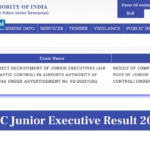The National Eligibility cum Entrance Test (NEET-UG) is the gateway to undergraduate medical courses in India. Every year, lakhs of students appear for this highly competitive exam to secure seats in MBBS, BDS, BAMS, BHMS, BUMS, and other allied health science programs. Clearing the exam is only the first step; the next crucial stage is counselling. This process determines which college and course you will finally get admitted to. Understanding how NEET UG counselling works is essential for making informed decisions and avoiding mistakes.
This blog provides a comprehensive guide to NEET UG counselling – from its structure and registration to seat allotment, reservation policies, and common mistakes to avoid.
What Is NEET UG Counselling?
NEET UG counselling is the centralized process by which eligible candidates are allotted seats in medical and dental colleges across India. It ensures transparency, merit-based allocation, and adherence to reservation policies. The counselling is primarily conducted by two authorities:
- Medical Counselling Committee (MCC) – for 15% All India Quota (AIQ) seats, Deemed and Central Universities, AIIMS, JIPMER, ESIC, and AFMC.
- State Counselling Authorities – for 85% state quota seats in government colleges and 100% seats in private medical and dental colleges within a state.
Candidates need to participate separately in both MCC and their respective state counselling if they wish to be considered for both categories.
Key Features of NEET UG Counselling
- Conducted online through official portals.
- Multiple rounds of seat allotment (Round 1, Round 2, Mop-up Round, and sometimes Stray Vacancy Round).
- Choice filling and locking are mandatory steps.
- Documents must be verified before admission.
- Reservation and eligibility criteria differ between states.
Eligibility Criteria for Counselling
- Qualification: Candidates must have qualified NEET UG with the minimum percentile required for their category (General, SC, ST, OBC, EWS, PwD).
- Nationality: Indian nationals, NRIs, OCIs, and foreign nationals are eligible under specific quotas.
- Age: The minimum age is 17 years by 31st December of the admission year; there is no upper age limit as of recent notifications.
- Category Certificates: Required if you are claiming reservation benefits.
Steps in NEET UG Counselling
1. Registration
Candidates must register on the official portal of the counselling authority. For MCC’s AIQ, this is typically the MCC website. For state quota, candidates register on the respective state’s medical education website. During registration, candidates fill in personal, academic, and NEET details and pay the counselling fee/security deposit.
2. Choice Filling and Locking
Once registered, candidates can view the list of colleges and courses available to them. They must fill in their preferences (choices) in order of priority. This is one of the most crucial steps. The choices must be locked before the deadline; otherwise, the last saved choices are automatically locked.
3. Seat Allotment
After the choice-locking period, the counselling authority runs a seat allocation process based on merit (NEET rank), category, and preferences. The seat allotment result is published online. Candidates can download their provisional allotment letter.
4. Reporting and Document Verification
Candidates who are allotted a seat must report to the designated college within the stipulated time to verify their documents and confirm admission. Failing to report may result in the forfeiture of the seat and security deposit.
5. Subsequent Rounds
If a candidate does not get a desired seat in the first round or wishes to upgrade, they can participate in Round 2. Seats left vacant after Round 2 are offered in the Mop-up Round. Deemed universities and private colleges often have a Stray Vacancy Round to fill any remaining seats.
Documents Required for NEET UG Counselling
- NEET UG Admit Card
- NEET UG Rank Letter/Scorecard
- Class 10 Certificate and Mark Sheet (for age proof)
- Class 12 Certificate and Mark Sheet
- Identity Proof (Aadhaar/Passport/PAN/Voter ID)
- Passport-size photographs
- Category Certificate (if applicable)
- PwD Certificate (if applicable)
- Provisional Allotment Letter
- Domicile Certificate (for state quota)
Candidates should carry both original and multiple photocopies of each document.
Reservation Policies
Reservation plays a significant role in seat allocation. Broadly:
- SC: 15%
- ST: 7.5%
- OBC (Non-Creamy Layer): 27%
- EWS: 10%
- PwD: 5% horizontal reservation
States may have additional sub-quotas for local candidates, minorities, or economically weaker groups. Always check the latest rules of the state counselling authority.
All India Quota vs State Quota
All India Quota (AIQ):
- 15% of seats in government medical and dental colleges across India are reserved for AIQ.
- MCC conducts the counselling.
- Open to all candidates from any state.
State Quota:
- 85% of seats in government colleges and 100% in most private colleges are reserved for candidates domiciled in that state.
- Each state has its own eligibility rules and reservation policies.
Candidates can apply to both AIQ and their state quota simultaneously to maximize their chances.
Tips for Choice Filling
- Research colleges beforehand – look at fees, location, faculty, and patient exposure.
- Arrange choices in genuine order of preference, not just perceived cut-offs.
- Include a mix of dream, realistic, and safe colleges.
- Do not leave the choice form blank – fill as many as you are eligible for.
- Lock choices before the deadline to avoid auto-locking errors.
Common Mistakes to Avoid
- Missing Deadlines: Counselling schedules are strict. Even a day’s delay can cost a seat.
- Incorrect Documents: Make sure your certificates are valid and updated. Mismatched names or dates can lead to disqualification.
- Ignoring State Counselling: Many candidates focus only on MCC but forget to apply for their state quota.
- Not Reading the Information Bulletin: Every year, the authorities issue updated guidelines. Failing to read them leads to confusion.
- Overlooking Bond/Service Requirements: Some government colleges have compulsory service bonds. Know the terms before locking choices.
Seat Allotment Rounds Explained
Round 1:
All eligible candidates participate. Allotted candidates can either accept the seat or opt for an upgrade in Round 2.
Round 2:
Fresh registration may be allowed. Candidates who did not get seats in Round 1 or want to upgrade can participate.
Mop-up Round:
For vacant seats after Round 2, usually in Deemed Universities and private colleges.
Stray Vacancy Round:
The last chance to fill leftover seats. Conducted by colleges based on the list provided by MCC or state authority.
Security Deposit and Refund
While registering for counselling, candidates pay a refundable security deposit. If they join the allotted college or exit as per the rules, the deposit is refunded after counselling ends. If they do not follow the rules or leave a seat midway, the deposit may be forfeited.
Expected Trends for 2025
With the growing number of NEET aspirants, cut-offs for government colleges are likely to rise slightly. Deemed and private colleges may still have relatively lower cut-offs but higher fees. Reservation policies are being fine-tuned to ensure wider representation. Online processes are becoming more streamlined, with fewer physical visits needed except for final admission.
How to Prepare for Counselling Season
- Keep all your documents scanned and ready.
- Follow the official counselling schedule closely.
- Join reputable information channels or discussion forums to stay updated.
- Seek guidance from seniors or mentors who have gone through the process.
- Have a backup plan (BDS, AYUSH courses, allied health programs) if MBBS seats are scarce.
Key Takeaways
- Counselling is as important as qualifying NEET.
- Be proactive – register, fill choices, and lock them on time.
- Double-check eligibility criteria for every quota you apply to.
- Keep an open mind about colleges and courses to increase your chances.
- Stay calm; the process may seem complex, but it is systematic.
Conclusion
NEET UG counselling is the decisive stage that turns your hard work into a medical seat. A clear understanding of its steps, deadlines, and rules can make the difference between securing your desired college and missing out. Approach it with the same seriousness as the exam itself. Gather information, plan your choices, keep documents ready, and track announcements regularly. With patience and preparation, you can navigate the counselling process smoothly and begin your journey into the medical profession with confidence.










